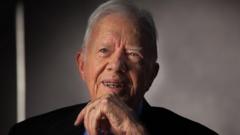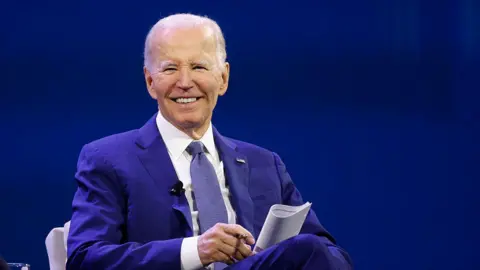Carter's legacy is underscored by his commitment to global peace, environmental advocacy, and human rights, well beyond his single term in office from 1977-1981, a period marked by economic turbulence. While former political opponents like Donald Trump and other leaders such as Bill Clinton and Barack Obama acknowledge Carter's profound impact, discussions continue on the complexities of his presidency against the backdrop of today’s political landscape.
In remembrance of a life dedicated to service, America reflects on the values Carter embodied and his lasting influence on both national and global stages.
With tributes pouring in, many leaders express a mix of respect and admiration for the late president's contributions to society, drawing attention to the broader implications of his work and the legacy he leaves behind.
In conclusion, Jimmy Carter's life tells the story of resilience and leadership, reminding us of the importance of service to others—a narrative that continues to resonate in modern America.
In remembrance of a life dedicated to service, America reflects on the values Carter embodied and his lasting influence on both national and global stages.
With tributes pouring in, many leaders express a mix of respect and admiration for the late president's contributions to society, drawing attention to the broader implications of his work and the legacy he leaves behind.
In conclusion, Jimmy Carter's life tells the story of resilience and leadership, reminding us of the importance of service to others—a narrative that continues to resonate in modern America.























